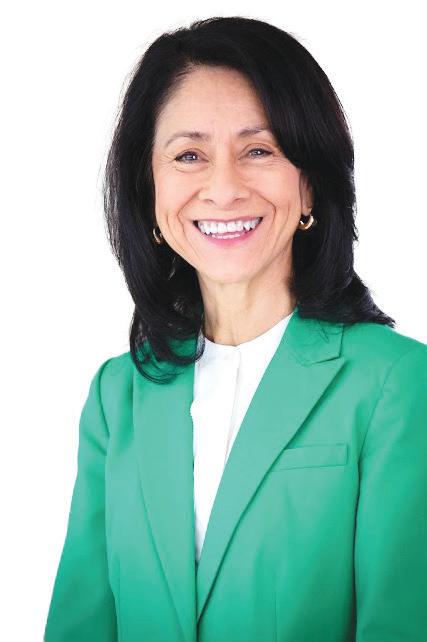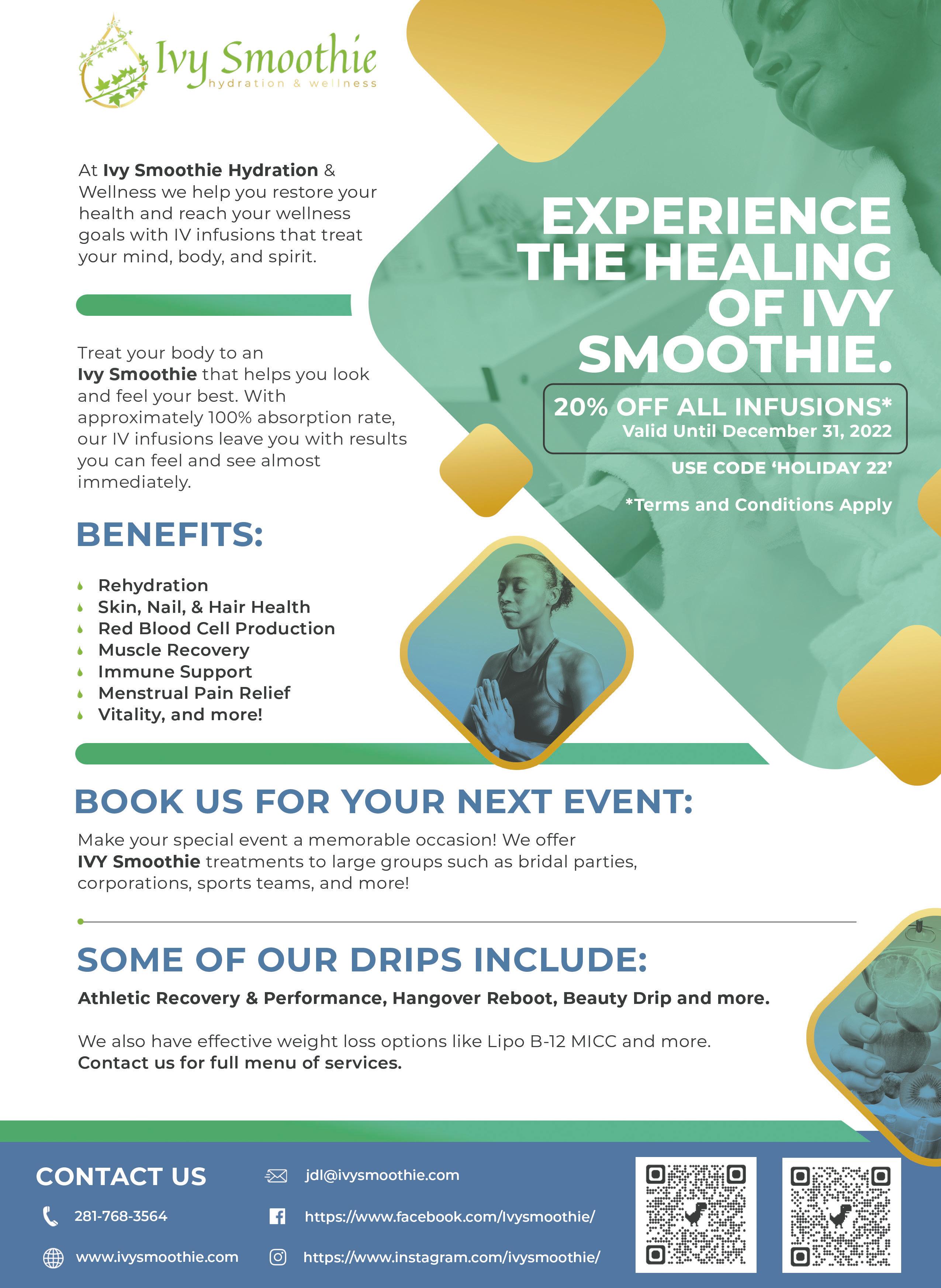








By Stacy M. Brown NNPA Newswire Senior
hen Dick Gregory died in 2017 at the age of 84, many chose to remember his comedic genius. Most properly credited him with inspiring greats like Richard Pryor, Eddie Murphy, and Chris Rock.
Others recalled how the multi-talented entertainer became a prolific freedom fighter in the civil rights movement. But District resident Tracye McQuirter will never forget how Gregory inspired her to change her eating habits and, ultimately, her life.
“When I was a sophomore at Amherst College in the 1980s, our Black Student Union brought Dick Gregory to campus to talk about the political, economic, and social state of Black America,” McQuirter reflected on the National Newspaper Publishers Association’s live daily morning program, Let It Be Known.
“Instead, he decided to talk about the plate of Black America and how unhealthfully most folks eat. This was in 1986, and we didn’t know that Dick Gregory had become a nutrition guru.”
McQuirter said she only knew Gregory as a comedic legend and civil rights icon. She also recalled that at the time of Gregory’s visit, she “was completely uninterested in healthy food.”
“But what grabbed me was when he started to trace – graphically – the path of a hamburger from a cow on a factory farm, through the slaughterhouse process, to a fast-food restaurant, to a clogged artery, to a heart attack. I had never heard anything like that before,” McQuirter stated.
While she and her two siblings grew up in a home where her mother made food from scratch each day, and vegetables were aplenty, her sugar-drinking, candy-eating cousins only heightened her interest in sugary products.
“At that time, I was going through a paradigm shift. I was taking a lot of political science and African American studies classes and learning about imperialism, racism, sexism, heterosexism, and classism for the first time or in new ways. It was changing my awareness and sense of self,” McQuirter remarked.
She added,
“I had also decided to stop relaxing my hair and wear it naturally. And it was with this new consciousness that I listened to Dick Gregory’s lecture.”
The lecture opened McQuirter’s eyes, and she could quickly survey the landscape, where the District proved a bastion of Black vegetarians and vegans long before today’s popularity.
“I immersed myself in this community taking cooking classes, attending lectures, going grocery shopping, asking hundreds of questions, and getting mentored,” McQuirter noted. “So, I learned how to be vegan from this community after I learned why to be vegan from Dick Gregory.”
Since then, McQuirter has earned her stripes as a transformative leader in plant-based nutrition and Black women’s health.
Dubbed a “Food Hero” by Vegetarian Times magazine, McQuirter has helped thousands of people turn to veganism. In addition, she created the 10 Million Black Vegan Women Movement to change the paradigm of Black women’s health.
She also authored “Ageless Vegan” and “By Any Greens Necessary.”
McQuirter also created the first free African American Vegan Starter Guide. The New York Times cited her work as a critical factor driving the rise in veganism among African Americans.
“Dick Gregory rocked my world when he made all these connections, and now it’s been 35 years,” said McQuirter, an advisor for the Black Women’s Health Imperative and Spelman College.
McQuirter, who also studied at Howard University, works as an adjunct professor at the University of the District of Columbia Center for Nutrition, Diet, and Health.
She holds a master’s degree in Public Health Nutrition from New York University and a bachelor’s degree in Black Studies from Amherst College.
“Animals get their proteins from plants,” McQuirter explained. “You get your proteins second-hand –from muscle tissues built from plants feeding animals. It’s normal and natural to get protein from plants, and to eat plants directly instead of going through the slaughterhouse process is best.”
She concluded,
“You get the bad with animals – the saturated fat and cholesterol that leads to diabetes, cancers, stroke, and hypertension. All of these we know affect African Americans the most.”
McQuirter said she understands there are too many food deserts and food insecurity in communities of color. However, she believes the resources are there to overcome those challenges.
Source: National Newspaper Publishers Association

“If
you’re able to grow your food, that’s the best,” she said. “If you go to a Farmer’s market, they will have organic fruits and vegetables, and that’s great; if organic foods aren’t available, then get nonorganic and wash the food well. So, it’s not an all-ornothing proposition.”

By d-mars.com News Provider
im Roxie, founder of LAMIK Beauty, has always been passionate about revealing the inner beauty in everyone. Through founding a successful business that takes an empowering approach to beauty, she has made it her mission to encourage self-love and natural confidence within her customers. Hear Kim’s story of how she built her business rooted in revealing true beauty.
“That’s when I realized that I had fallen in love with not just makeup, but making people feel good about themselves. I was good at my job.” ~ Kim Roxie, 2022

LAMIK, (Love and Makeup in Kindness), is exactly what Houston native Roxie achieved through the beauty brand.
On Dec. 28, the entrepreneur will see the company’s debut on the Home Shopping Network. Not bad for the Clark Atlanta University graduate who discovered her Godgiven ability at a mall makeup counter,
“When I applied for jobs, the only place that called me back was a makeup counter. I had never done makeup before, but they were my only offer, so I had to show up. This is really where I got my first experience in the beauty industry.”
It’s not impossible to encounter colorism in the country especially in particular areas such as the south where lighter skin still maintains
its moments of taboo, debates and a metric of acceptance. Roxie saw her surroundings in the early stages of the beauty industry and in the world around her. She sought change to not allow select narratives dictate her own career interests,
“I grew up in Houston, and as a child, I was surrounded by a culture in which colorism was evident. Attitudes regarding beauty in music, pop culture, and just around where I grew up, were very much skewed towards the idea that lighter skin was just prettier.”
The businesswoman admits that she wasn’t necessarily moved by what “makeup allowed” for her to do, but because of the conversations she got to have helping others tap into their beauty. In addition to those she was helping through dialogue while perfecting the craft, Roxie developed her own influences of fortitude including her mother’s earthly departure, seeing women unable to find their foundation match with major brands and even her own personal journey.
After watching her own success in Atlanta, the idea of opening her own makeup counter in Houston became a natural go-to. Afterall, Roxie had gotten a glimpse of her efforts and business savvy made a difference in the Black Hollywood capital of the world. Once she made her way back to H-Town, it was her mother who gave that seed creating roots in LAMSIK’s existence.
With a $500 offering from her mother prior to passing, the LAMIK CEO admitted that while dealing with her grievance period, she was battling low-self-esteem. To pull herself up, Roxie had placed her doubts on the backburner,
“My mother believed in herself like no other. She would put on a full face of makeup to go to work at the post office. When I thought about her and the confidence that she possessed, I knew I could get over my fears about the process and make my own cosmetics line.”
She added, “The legacy of my mother is why it was important for me to have a clean beauty line in particular. When she died of breast cancer, I started looking into beauty products and started seeing so many chemicals and other ingredients that were linked to health issues.”
LAMIK became a brick-and-mortar makeup shop in Houston when Roxie had turned 21. She provided women of color an all-natural paraben free makeup option for their day-today makeup routine.
The growing adult became the youngest African American woman to have her products carried in Macy’s after showcasing 14 years of business stability to satisfactory results.
With added purpose through circumstances, Roxie used her own bouts with Alopecia as a catalyst for service expansion,
“I started LAMIK because I suffered from Alopecia, and I couldn’t find anything on the market that catered to my needs. My clients are women like me who share similar stories of not feeling seen by the cosmetics industry.”
She added,
“This is a win for not just me but for every other small black owned business, because it tells major corporations and retailers that we have buying power.”
Source: Ariel Baker, Popsugar Contributor & d-mars.com
By d-mars.com News Provider
Spring ISD Superintendent Dr. Lupita Hinojosa has been selected as a 2022 Superintendent to Watch by the National School Public Relations Association (NSPRA). Hinojosa joins just 24 other superintendents nationwide who were selected for the honor in recognition of their innovative and effective use of technology to engage and inform the school community, and to expand two-way communication and outreach efforts.
“I am extremely honored to receive this recognition, especially as it relates to engaging with our stakeholders,” Hinojosa said.
“One of the key priorities of Spring ISD’s Strategic Plan is Engagement, and it’s vitally important that we provide our parents, students and staff with a sense of belonging in our district – so that we can all work together to ensure excellent and equitable outcomes for all students.”
While valuing newer communications technologies, such as the district’s Let’s Talk online communication platform, Dr. Hinojosa was also recognized for emphasizing the value of face-to-face engagement with the community, regularly visiting schools and other district facilities and taking the time to personally talk with teachers, support staff, students, parents, local business partners and faith leaders. In addition, she was noted for engaging in regular in-person gatherings with a variety of stakeholder groups and advisory councils, including parent and student advisory councils.
“This year’s honorees understand just how important effective communication is in building trust and relationships with families, employees, students and community members in their districts,” said NSPRA Executive Director Barbara M. Hunter, APR. “These emerging leaders have proven to be dedicated champions of innovative communication efforts to advance their district’s success.”
NSPRA had a record number of nominations this year—nearly 60—and many exceptional candidates, making the selection process very competitive. Since the 2015-16 school year, NSPRA has recognized 127 school district leaders as Superintendents to Watch. Honorees must have fewer than five years of experience as a superintendent and must demonstrate dynamic, fastpaced leadership with strong communication at its core.
As the leader in school communication, NSPRA serves more than 2,500 members who work primarily as communication directors in public school districts and education organizations throughout the United States and Canada.
Visit www.nspra.org/ superintendents-watch to learn more about this award.
Source: Kristen Cobb, Spring ISD Communications
Dr. Lupita Hinojosa

